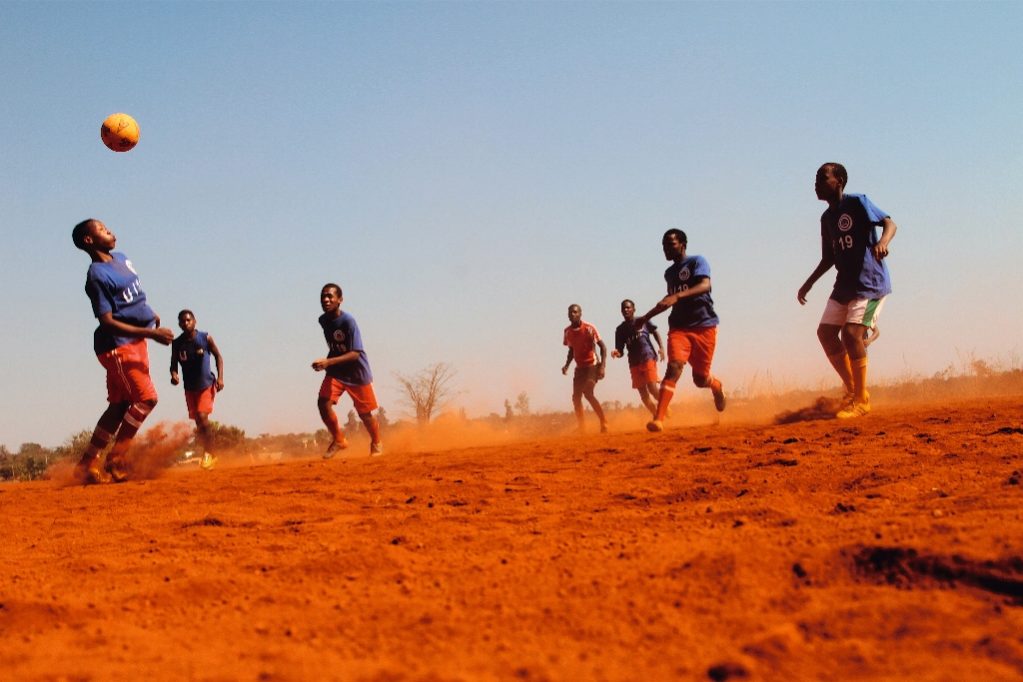There are millions of children playing football around the world, but only a fraction will ever make it to the professional ranks.
Ability is an obvious factor, you either have the talent or you don’t, but while technique and tactical awareness can be taught to a certain extent, there are a whole range of other issues that come into play.
One of the keys in developing players for the modern professional game is to get them into structured academies at the earliest possible age.

In Europe and South America, it is common for youngsters to be linked to academies by the time they are at the age of seven or eight. The reason for this is simple, it is the best age to start teaching them the fundamentals of the game and set them on the correct path to a professional career.
In Africa there are millions of children playing the game; a handful of them are attached to clubs while the rest play at schools or on the streets.
The lack of structured coaching at a young age prevents them from taking the step up from street football. The few lucky individuals that attract interest from professional clubs are held back because they have already picked up bad habits that are difficult to dislodge.
A 17-year-old should have the basics of the game ingrained in them. They should not need to be taught how to pass, cross and shoot. Today, the sad reality is that a lot of players do not have these skills due to a lack of coaching in their formative years.
I look across the leagues of Africa and I see professional players who struggle with the basics.
The academies at Barcelona and Ajax Amsterdam are renowned for producing some of the world’s most talented stars. When one of their players reaches the age of 17, he has probably spent 10 years in the academy and will be more technically advanced than players from Africa. He will also know exactly what his role is in the side and where to position himself at any given moment in the game.
This is often the biggest criticism of players from Africa who move to Europe. Yes, they are skillful and have good physical attributes, but they lack the feel for the game that can only come with years of consistent and methodical coaching.
It is a huge challenge for our continent, not just to open academies to harness young talent, but to do it in the right way with expert coaching.
Those academies do exist in Africa, but they are few and far between and until we can get that right our players will always be at a disadvantage, relying solely on raw ability.
Some of the most successful players from our continent in the last two decades, such as Samuel Eto’o, Yaya Toure and Emmanuel Adebayor, were teenagers when they went to Europe and had the privilege of training at top academies. Had they only been spotted later in life, it’s doubtful they would have had anywhere near the success they have enjoyed.
Beyond the honing of skills at an early age, there are other factors that determine success.
Attitude is a major one. Players need the hunger to become a professional player and must be willing to put in hard work. Another factor is professionalism. There are hundreds of cases of footballers from all over the world – this is not only an African issue – who have looked world-class as teenagers but failed to live up to the promise because of factors outside of the game.
Think back to when you were 18. You probably felt invincible and perhaps even a little rebellious. For every player that manages to get past that phase of their life with dedication, there are others who fall by the wayside.
These days, we have players who are multi-millionaires by the age of 21, with more friends than they have ever had in their lives and lots of time on their hands to spend that money.
The temptations are huge and perhaps more so for African players who come from impoverished backgrounds and now have more money than they could ever dream of.
Today, clubs and agents provide much more support, in terms of counseling and financial guidance, but the player has to be a willing participant.
Africa has ability in abundance but the power to successfully harness it is very much a work in progress. It is why, to my mind, there are not a lot more African players in the top five leagues in Europe. The demands of the modern game are moving away from the purely physical attributes, which presents a problem for us.
Where is the next Eto’o, Didier Drogba or Michael Essien going to coming from? There aren’t any obvious superstars emerging from the continent. We have good young players floating around, but no great ones. They are not competing on an even keel with players from Europe and South America.
Our great challenge for the decades to come is to give them that opportunity and raise the standard of the development work we do so that the trickle of top players from Africa becomes a flood.
